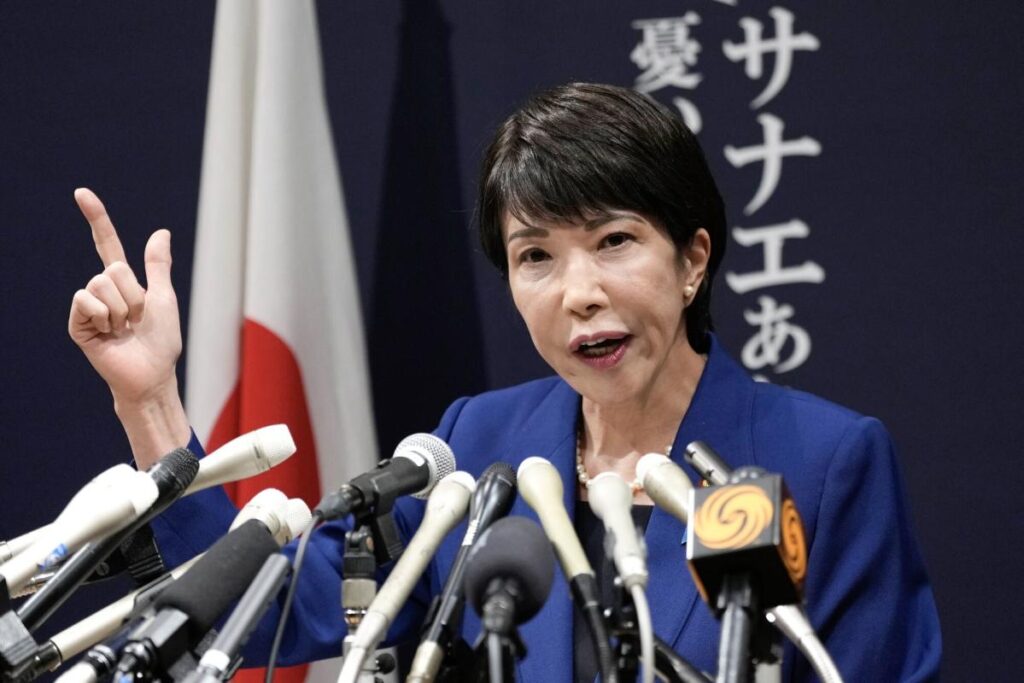(Bloomberg) — The race for Japan’s next prime minister appears to be turning into a battle between three candidates with differing political views, according to the latest polls.
Most read from Bloomberg
Sanae Takaichi, a proponent of fiscal and monetary tools to stimulate the economy, has new momentum, while Shinjiro Koizumi, a proponent of deregulation, has lost some ground, the surveys suggest. Shigeru Ishiba, who has emphasized regional revitalization, remains popular among the ruling Liberal Democratic Party’s base.
Most other candidates do not have enough support to win in the election, according to surveys of LDP supporters, members and party lawmakers ahead of the Sept. 27 leadership election. The election will also almost certainly determine who will be Japan’s next prime minister, given the LDP’s dominance in parliament.
While public opinion has been the main indicator of candidates’ prospects so far, the new polling data also includes support among lawmakers, which could be the deciding factor in the election. The large field of nine candidates makes it likely that no candidate will win a majority in the election, which would trigger a runoff between the two candidates who received the most votes in the first round. Nearly 90% of the votes in the runoff are allocated to party lawmakers.
Based on polls of LDP members and party lawmakers, the Yomiuri newspaper estimated Sunday that Ishiba and Takaichi would have enough votes to advance to a runoff, with Koizumi close behind. The Yomiuri found the strongest support among LDP lawmakers for Koizumi, a positive sign in a possible runoff.
Koizumi, the son of a former prime minister, is one of the front-runners in opinion polls. In a series of press conferences and debates since the campaign began on Sept. 12, other candidates have criticized his call for labor market reforms to give big companies more flexibility in laying off workers.
Koizumi has said reforms are needed to help the influx of workers to startups and smaller companies in new growth sectors. Political analysts say Koizumi’s support may have been eroded by public concern over his call to change Japan’s tradition of jobs for life.
“While Koizumi remains among the top three candidates, he no longer appears to be in a position to make inroads among LDP voters,” Tobias Harris of Japan Foresight LLC, a political risk consultancy, wrote in a note to clients.
The latest poll data show that Ishiba still enjoys strong support among LDP members and supporters, which could push him into a runoff. A poll of LDP supporters by the Asahi newspaper showed Ishiba with 32 percent support, with Koizumi in second place with 24 percent. Ishiba has acknowledged that his challenge lies in bolstering support among LDP lawmakers, a problem he has faced in four previous attempts to win the party’s leadership.
Takaichi, meanwhile, was selected as the top choice among LDP supporters in a Kyodo News poll published Monday, with 28% support, ahead of Ishiba with 24%. A Nikkei newspaper poll published Sunday also showed Takaichi in second place behind Ishiba among LDP supporters.
The most likely wild card in the election is Takayuki Kobayashi, who has emphasized economic recovery over fiscal consolidation, according to the Yomiuri poll. Among LDP lawmakers, Kobayashi was the second-most popular choice after Koizumi in the newspaper’s poll. A similar poll of lawmakers conducted by JNN showed Kobayashi and Koizumi as the two most popular choices.
Japan Foresight’s Harris said that while Takaichi and Kobayashi appear to be competing for the support of right-wing lawmakers in the LDP, Takaichi’s strength among rank-and-file LDP members could help offset the lawmakers she may lose to Kobayashi. He added that it was unlikely that another candidate would experience a late-term resurgence.
Most read from Bloomberg Businessweek
©2024 Bloomberg LP

